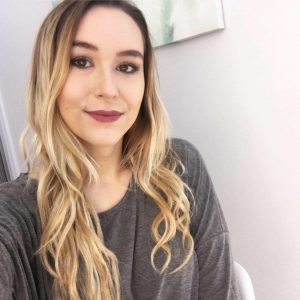Banking & budgeting
Jobs & Careers
Writing that all-important CV (and cover letter)

By Lacee-Ann Froeschl
In Jobs & Careers
There is one common struggle when it comes to getting that promised job after graduation – your CV (aka curriculum vitae).
When it comes to applying for the first job of your future career, the one thing that projects
your very capable abilities is having EXACTLY what your employer wants to see, in your
resume. I.e. All of your relevant skills and abilities
to the job you’re applying for.
But sometimes selling yourself isn’t as easy as
everyone makes it out to be. Regardless of how
confident you feel; the nerves are still real.
Professional resume writer Gail Lockyer at Half
Day P/A says it is important to understand a
standout resume includes being legible, logical and
linked.
“The job search is an extremely competitive field,”
she says. “It needs to be easy to read and not like a
novel; recruiters want you to sell your skills and cut
to the chase.”
Gail also says despite the common thought that
resume writing is a struggle, it comes a lot closer to
a student’s abilities than they think.
“It can be difficult for the untrained eye to
understand how to write about your skills because
too often we are too close to the core,” she says.
“[But] a resume can be similar to an essay. They’re
both stories in their own right; a resume needs to be
written in chronological order… [and] it may
include a career summary or skills summary
whereas an essay may also have a brief conclusion
or final summary.”
Places you can look to find evidence of your skills
can be anything from employers, university or even
friends and family.
Now, what about a cover letter?
Some think cover letters are unnecessary while
others say it’s important to showcase the most
relevant skills to catch the eye of your prospective
employer.
“In many incidents, recruiters don’t actually put their eyes on your resume at the initial
stages,” Gail says. “Your resume is put through a scanning program in search of keywords
and this will then sort out all the applications.”
Gail recommends writing a cover letter rich in common selection criteria terminology to
optimise your chances of being shortlisted.
“The key words are often in the ‘required skills’ of the job advertisement,” she says. “If
they’re asking for an application with a ‘proficient in xxx skills’ then ensure you write that in
your cover letter and can link that to demonstrated experience in your resume.”
Don’t forget to always get another human brain to proofread important documents. While
Microsoft Word’s spell checker will detect most typos, homonyms and different language
spellings may go unnoticed. If you’re marketing yourself as a person with ‘attention to
detail’, these small mistakes may be costly.
Last but not least, templates.
There may be some of you who are savvy with Word, Illustrator or Indesign, but for those of
you who aren’t and can’t afford professionally designed templates, just check out Seek for
free resume and cover letter templates.
For more info on how to stand out in the job hunting crowd, visit Seek or contact Gail at Half
Day P/A.
Resume tips & tricks
- Include your name, contact details and address
- Make your headings stand out – put them in bold or complimentary font
- Have a good text to white space ratio (don’t make your page look crammed)
- Limit your skills, education, work experience etc. to two or three pages (the past 10 years)
- Keep it simple – but use language listed in the job description
- Use bullet points instead of long paragraphs
- List experiences in chronological order
Where to look for your skills
- Self, peer or teacher evaluations
- References from current and previous employers
- Your course outline objectives
Cover letter tips & tricks
- Show enthusiasm for the job and industry
- Answer their key requirements
- If you don’t have the appropriate training, mention you are prepared to undertake further studies
Views expressed by authors do not necessarily reflect those of Student Wow Deals. Student Wow Deals accepts no responsibility for any reliance upon the articles contained herein.
Hottest Deals
Facebook
LinkedIn
Twitter


